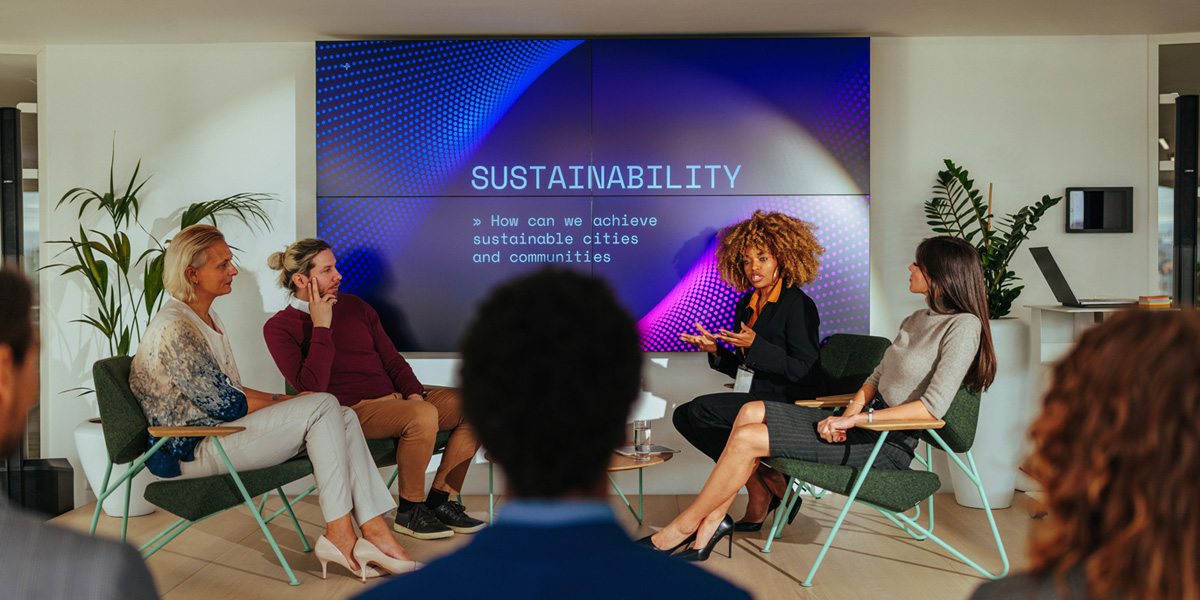Environmental management is a job and industry on the rise. In a recent NAVEX survey of 1,250 executives in the U.S. and abroad, 88% of respondents working for publicly-traded companies and 67% of those with private companies reported having initiatives in place to address environmental, social and governance concerns.
The sustainability and environmental job market is similarly booming, with demand outpacing supply and average incomes for sustainability professionals rising higher than the national average. The push toward sustainability is making headway, but there still is a long way to go. Sustainability, like any movement of this scale, requires significant input of labor and capital to meet the environmental benchmarks set by governments across the globe.
The pressure on organizations to adopt sustainability measures and examine their impact on the world comes from several sources. Consumers are showing they care about environmental impact based on what they buy, while government agencies are setting stricter standards and offering financial incentives to those who follow their lead.
These various pressures will continue into 2024 and beyond, generating significant impact across many industries. In this article, we explore three emerging environmental management trends.
1. Government investment ramps up in a big way
Major steps toward long-term sustainability have been made in recent years, with 2021’s Infrastructure Investment and Jobs Act and 2022’s Inflation Reduction Act investing billions of dollars toward sustainability infrastructure, research and clean energy. As this money is dispersed throughout the American economy and impacts the workforce, this will likely further incentivize the investment in “green jobs,” including positions in environmental management focused on examining the practices of organizations and implementing improvements.
2. Greater scrutiny on what “sustainability” means
While terms like “sustainability” are commonplace in both public-facing marketing and in the corporate boardroom, its exact definition, standards and meaning is still somewhat in flux. As with any buzzy industry term, there is pressure to adopt the language of sustainability without necessarily taking the idea seriously or fully investing in it. This can lead to “greenwashing,” when organizations either mistakenly or intentionally mislead their clients, consumers or regulators about the environmental benefits of their product or service.
The increased public spending on sustainability will invite much greater government scrutiny and regulation on what can be reasonably called “sustainability,” how it is documented, and so on. On the plus side, this will create added incentives for organizations to employ environmental management experts to lead their organization’s sustainability efforts.
3. The global supply chain under a microscope
After facing intense scrutiny during the COVID-19 pandemic, the global supply chain is becoming a focal point of government regulation on sustainability and outsourcing. Because the supply chain can be constrained by environmental events and crises abroad, there is growing pressure for holistic assessments of the supply of labor, raw material and everything else that makes the supply chain work.
Similarly, governments are ramping up pressure on organizations to take a closer look at Scope 3 emissions, which the Environmental Protection Agency defines as “the result of activities from assets not owned or controlled by the reporting organization, but that the organization indirectly affects in its value chain.” For example, a solar company which ships panels by freight should also consider the emissions of the freight provider they chose, how their products are disposed of at the end of their working lifespan, and so on.
The goal of this pressure is to motivate businesses to consider factors beyond profits. This new dynamic has already created a small-but-growing industry of green financial technology services which help companies invest sustainably and divest from harmful or inefficient past practices.
Environmental Management Education at CSU
Here at Columbia Southern University, students can level up their understanding of the complex world of sustainability and develop the essential skills needed to be successful in environmental management. Our online degree programs in environmental management include:
- Bachelor of Science in Environmental Management.
- Bachelor of Science in Environmental Management – Energy and Land-Use Management.
- Bachelor of Science in Environmental Management – Sustainability.
To learn more about our online degree programs in environmental management, visit our website.
Multiple factors, including prior experience, geography and degree field, affect career outcomes. CSU does not guarantee a job, promotion, salary increase, eligibility for a position, or other career growth.





